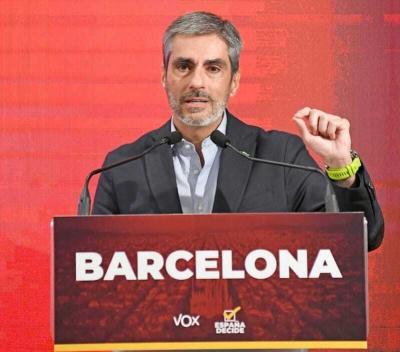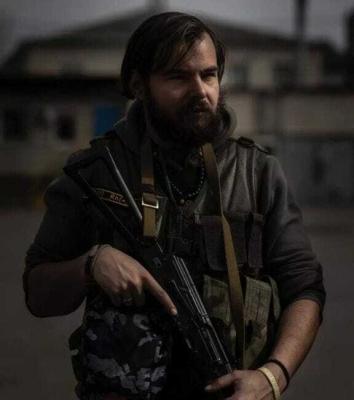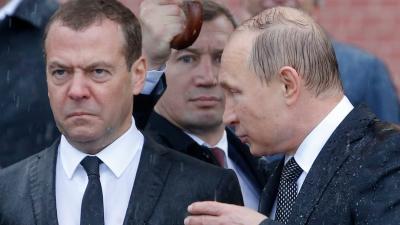On 16 November, Pedro Sánchez was sworn in as president with the support of the communists and all the pro-independence forces present in the Spanish parliament.
The new government repeats with four vice-presidencies and 22 ministries, but Pedro Sánchez has broken a new spending record and has the most expensive government in history with a total of 2062 advisors and 336 senior officials, which means a total expenditure of 146 million euros, according to data from the Ministry of Finance. The far left gets five ministries: Labour, Health, Culture, Social Rights and Agenda 2030, and Children and Youth. The latter was recently created and in the hands of Sira Rego, a communist of Palestinian origin, who on the very day of the massacres committed in Israel by Hamas published a tweet in which she affirmed that the Palestinians "have the right to resist".
This, which understandably sparked controversy, was nothing to what was to come. Pedro Sanchez visited Jerusalem together with Belgian Prime Minister Alexander De Croo to meet with Israeli Prime Minister Benjamin Netanyahu. During the meeting, Sanchez told a stunned Netanyahu what he had to do to resolve the conflict. Naturally, the Israeli prime minister made it clear to Sánchez that he could not lecture him. But the trouble had only just begun. At the Rafah border crossing in Egypt, Sánchez said that violence does not solve anything, and called against the "indiscriminate killing of civilians", in reference to the Israeli army. Not only that, Sánchez also raised the possibility of Spain unilaterally recognising the Palestinian state even if the EU did not. These declarations led the Israeli authorities to summon the Spanish ambassador, considering them to be "support for terrorism". Indeed, the terrorist group Hamas congratulated Sánchez and De Croo for their "clear and bold" stance. Back in Madrid, Sánchez further aggravated the crisis, accusing Israel of "breaching international humanitarian law" and calling the images he had seen in Israel of the 7 October massacre an "anecdote" in a television interview. As a result, Israel has recalled its ambassador to Spain. "Following the outrageous statements by the Spanish Prime Minister, who once again repeated unfounded accusations, I decided to recall our ambassador to Spain for consultations in Jerusalem," Benjamin Netanyahu said. Apparently, none of the government's new 2062 advisors have any notion of diplomacy.
The Popular Party is back to its old ways
Alberto Núñez Feijoo described the investiture of Pedro Sánchez in the Congress of Deputies as an operation of "political corruption" that has dynamited the "ethical, political and legal limits", and accused him of lying because for years he assured that amnesty was impossible. However, after Sánchez was sworn in as president with the votes of communists and separatists, Feijóo came to congratulate him, in a gesture that is difficult to understand when in the weeks prior to the investiture he had described the amnesty as an "aberration" and an "attack on democracy and equality among Spaniards". This gesture led many to believe that, despite the speeches and continued street demonstrations, the PP leadership had returned to its usual role as a necessary collaborator of the PSOE, which has led us to the current dramatic situation. It did not take long for the PP leadership to point out that Feijóo's "opposition is going to be frontal", but without "saying that it is an illegitimate and illegal government", in an exercise of "toughness compatible with moderation". A few days later, Feijoo made a statement in which he said that "there is a lot of talk about amnesty, independence, debt forgiveness for the autonomous communities that have the most money, and what we should be talking about is more about prices, how we can lower mortgages and how we can make ends meet". In other words, for the Partido Popular, the amnesty for the coup perpetrators and the end of the separation of powers and the equality of Spaniards are secondary issues in the face of the shopping bill. This message seemed to confirm that, once again, the PP was back to its old ways and accepted the new situation. Confirmation came when Feijóo offered the Socialist Party to collaborate on issues related to gender violence and "fight against male violence". On 28 November, five days before a new demonstration against Sánchez's government, the Popular Party agreed with the PSOE and Sumar to create 31 parliamentary commissions, including a commission against corruption and another to achieve the goals of the 2030 Agenda. Not only that, Feijóo refuses to coordinate a response with VOX, which has supported all the demonstrations called by the Popular Party, and refuses not to process the amnesty law in the Senate, where the PP has an absolute majority, because that would mean abusing the rules, something unjustifiable despite the fact that the Left is staging a coup d'état.
How does the PP justify its passivity? With a magic word that is also often used by the Socialist Party in government to justify laws that harm Spaniards: "Europe". The moderate PP leaders have left the ball in the court of the European People's Party, whose leaders are being much more forceful with Sánchez's actions than the Spanish ones. The latest and most heated controversy has been with Antonio Tajani, leader of Forza Italia, Italian vice-president and foreign minister, after Pedro Sánchez claimed that Italy has a government of "ultra-right" and "reactionaries". Tajani replied that Spain is governed by "secessionists" and questioned respect for the rule of law. The European Parliament held a debate on amnesty on 22 November, and has called for a debate on 23 January on the situation of the rule of law in Spain. However, the Commission seems unwilling to act as it did with the conservative governments in Poland and Hungary, and for the time being is "analysing" the amnesty law. No wonder, because, after all, Pedro Sánchez is one of their own, a devout follower of the mantras of the 2030 Agenda.
A month of mobilisations
There have been several mass demonstrations called by both VOX and the PP, even a general strike by the Solidarity trade union, but, without doubt, the image of the protests that has been reported in most of the international media is the one that every night, for more than a month now, has been concentrated in front of the headquarters of the PSOE in Madrid, in Ferraz street, or rather in front of the police fences. The unjustified police charges against peaceful demonstrators on the fourth night of protests, in which riot police used tear gas and rubber bullets (something they did not do in Catalonia against organised violent groups), showed the world that something was going on in Spain. Tucker Carlson also went to Ferraz one night accompanying Santiago Abascal, who along with other VOX leaders has regularly attended the protests, increasing the media coverage of the protests. The subsequent interview with the VOX leader has so far been seen by more than 10 million people.
In Ferraz we have seen everything: a parade of inflatable dolls towards the PSOE headquarters due to the scandal of several socialist deputies with prostitutes; tarpaulins against the PSOE and the police action; a barbecue to feed the demonstrators... But, above all, we have seen a capacity for resistance that many did not believe possible. Despite police charges, attempts to criminalise them in the media and fines, the rallies were repeated every night. One of the most tense moments came when the police fined and even arrested people for praying the rosary. The next day, the street was full of people praying with their rosary in hand. The protests may be fading with the passage of time, but it is very clear that the government has not found a way to stop people from going to Ferraz.
While thousands of Spaniards take to the streets day after day worried about their nation, the future of Spain was discussed on 2 December, in a secret and isolated place near Geneva (Switzerland), in the first meeting between the PSOE, represented by its number 3, Santos Cerdán, and Junts, represented by its leader, the fugitive Carles Puigdemont. A meeting that would have gone well, in Cerdán's words, and in which, according to Junts sources, the amnesty would have been discussed, as a first step to guarantee support for Sánchez, to then continue with "the money and the referendum". As if all this were not serious enough, the meeting was attended by an international mediator, the Salvadoran diplomat Francisco Galindo Vélez, ambassador to France and Colombia with left-wing governments until his resignation in 2020, representative of the United Nations High Commissioner for Refugees (UNHCR), and an observer in the peace process between the Colombian government, Cuba and the communist FARC guerrillas. It is hard to imagine more opprobrium and humiliation for a country over a handful of votes; unfortunately, this has only just begun.
Read also
Bohdan Chuma: “Ukraine’s history is a normal and typical history of a European nation”
Putin is trying to write a history of the Russian Empire that begins with the Tsarist Empire, continues with Soviet Communism, the Red Empire, and now continues under his government.
Álvaro Peñas
Gonzalo de Oro: "If VOX does not defend the Catalans, no one else will"
Interview with Gonzalo de Oro, VOX councillor in Barcelona City Council and coordinator of the VOX municipal group.
Álvaro Peñas
Francisco Floro: 'Basically, this invasion is about the reconstruction of the former Soviet space'.
Interview with Francisco Floro, Spanish volunteer in Ukraine.
Álvaro Peñas
The Worst Kind of Men
In Mel Gibson’s acclaimed film Braveheart, the infamous English king, Edward “Longshanks” meets with the leading nobles of the realm to decide how to approach control of Scotland.














Comments (0)